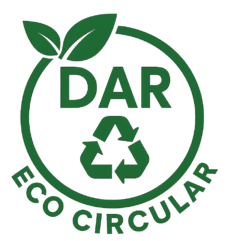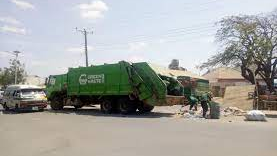Project Components: Integrated System Design
The Dar es Salaam Integrated Waste Facility (IWF) is more than a site — it’s a city-wide circular economy engine, transforming waste into clean energy, industrial inputs, and sustainable jobs while cutting emissions and strengthening climate resilience.
⚙ IWF System Architecture: A Circular Urban Engine
The IWF is a decentralized network of transfer, treatment, and transformation hubs, built to:
- Recover and recycle solid waste at scale
- Process organics through anaerobic digestion & composting
- Convert residual waste to clean electricity via Waste-to-Energy (WtE)
- Treat faecal sludge for safe reuse
- Anchor green manufacturing through an Eco-Industrial Park (EIP)
🚛 Collection & Transfer Network: Smart Infrastructure Backbone
A digitally enabled Transfer-Sorting Network will serve all five municipalities — Ilala, Kinondoni, Temeke, Ubungo, and Kigamboni — linking neighborhoods to regional recovery hubs with GPS-enabled fleets, weighbridges, and contamination alerts.
| Hub | Function | Municipality | Zone |
|---|---|---|---|
| Pugu Kinyamwezi | Transfer & Anaerobic Co-Digestion Hub | Temeke / Ilala | South-East Dar |
| Pemba Mnazi | ACoD, WtE & EIP Anchor | Kigamboni | South |
| Mbezi Beach (WTP) | Collection & Sorting Hub | Kinondoni | North |
| Vingunguti | Urban Pre-Sorting & Sludge Hub | Ilala | Central |
| DAWASA Kibamba | Transfer & Sludge Sorting Hub | Ubungo | East |
🌱 Anaerobic Digestion & Composting: Powering Cities from Organics
Using advanced German MBT and Anaerobic Co-Digestion systems, the IWF transforms organics and faecal sludge into renewable energy, fertilizers, and RDF — creating value from what was once waste.
- Biogas & CBG for clean cooking, industry, and city fleets.
- Organic Fertilizers that boost peri-urban agriculture and close nutrient loops.
- RDF from reclaimed Pugu Landfill, supplying cement industries.
- Stabilized Sludge for safe reuse in agriculture or low-carbon building materials.
Impact: Cuts methane emissions, displaces fossil fuels, restores soils, and reclaims landfill land for urban redevelopment — including potential housing.
⚡ Waste-to-Energy (WtE): Residual Waste Valorization
A 1,500 tonne/day WtE facility at Pemba Mnazi in the Kigamboni SEZ will process all non-recyclable waste into clean energy and construction inputs.
- Modular incineration with advanced flue gas scrubbing for clean air compliance.
- 50–100 MW renewable electricity feeding the SEZ and TANESCO mini-grid.
- RDF supply replacing coal in industrial processes.
- Ash upcycling into aggregates for sustainable construction.
🏭 Eco-Industrial Park (EIP): The Engine of Green Manufacturing
Co-located with the WtE plant, the 1,000-acre Eco-Industrial Park will be a hub for low-carbon manufacturing, SME innovation, and ESG-driven investment — turning Dar es Salaam into a continental reference for circular industry.
- Biogas bottling & fertilizer plants serving urban and rural markets.
- SME zones for plastics upcycling, sludge-to-bricks, bio-packaging.
- Shared circular infrastructure — treated water, renewable energy, logistics.
- SEZ incentives attracting clean-tech and climate-aligned financing.

